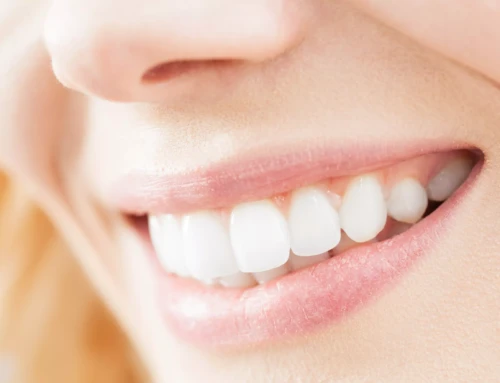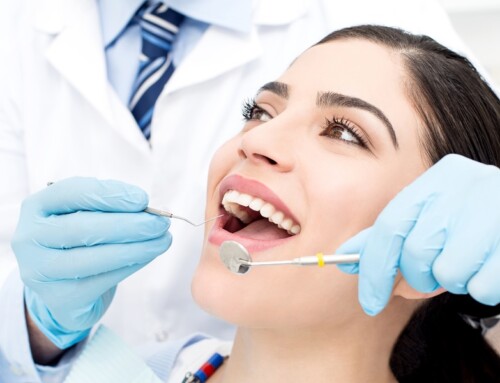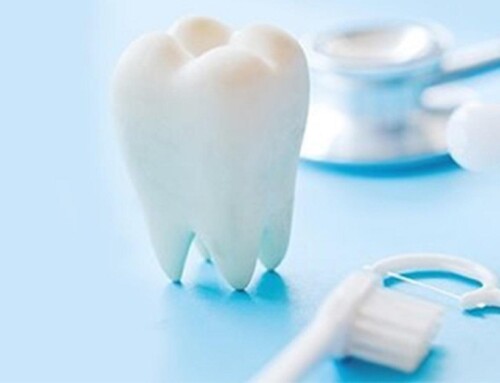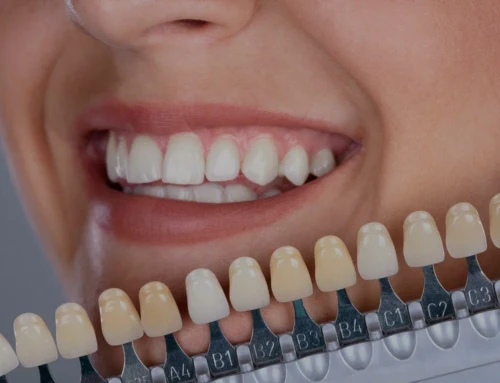Do you have Sensitive Teeth?
Do your teeth hurt when you bite into ice cream or drink something hot? Do they hurt when you brush your teeth or bite down? You could have sensitive teeth! Sensitive teeth can be beyond distracting and are always a sign that something is wrong. What causes tooth sensitivity and how can it be fixed.
For our discussion, tooth sensitivity is different than dental pain which can be caused by tooth infections (abscesses), damaged tooth structure (fractured or broken teeth or cavities) or gum problems (periodontitis, disease or trauma) among other things. Because the symptoms can crossover between true dental pain and dental hypersensitivity, it is critical that a proper diagnosis be made by a trusted dental professional.
Sensitive teeth respond abnormally to cold or hot, sweets, being touched (like with a toothbrush or a metal instrument) or to biting. Under normal conditions, teeth do not respond negatively to these types of stimuli. So let’s look at these two types of hypersensitivity.
Hot, Cold, Sweets and Touching Sensitivity
Sensitivity to temperature, sweets or touching is usually caused by one of four problems, although there are several other less likely potential causes.
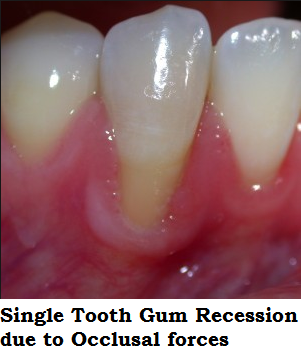 1. Gum Recession- When the gum-line moves away from the biting surface of a tooth, it is called recession. Recession exposes the root surface of the tooth, which is softer and more porous than the white enamel the covers the part of the tooth you normally see. Recession is caused by: a.) abrasive tooth-brushing, b.) tooth grinding or c.) gum disease. Preventing further recession is essential and a dentist can help eliminate the factors that cause recession. Treatment of this type of sensitivity is effectively accomplished by the use of a prescription toothpaste, such as Prevident, which calcifies or hardens the exposed root surface. This will only be a short-term solution if the problem causing the recession is not eliminated.
1. Gum Recession- When the gum-line moves away from the biting surface of a tooth, it is called recession. Recession exposes the root surface of the tooth, which is softer and more porous than the white enamel the covers the part of the tooth you normally see. Recession is caused by: a.) abrasive tooth-brushing, b.) tooth grinding or c.) gum disease. Preventing further recession is essential and a dentist can help eliminate the factors that cause recession. Treatment of this type of sensitivity is effectively accomplished by the use of a prescription toothpaste, such as Prevident, which calcifies or hardens the exposed root surface. This will only be a short-term solution if the problem causing the recession is not eliminated.
2. Grinding or Clinching- Clinching or grinding is most often done at night while one is unconscious. Day grinding is less common and always is associated with grinding at night. Grinding and clinching causes stress and, sometimes, fractures at the gum-line which, in turn, causes the sensitivity. Using a properly designed Night Guard will eliminate the sensitivity.

Grinding and clinching
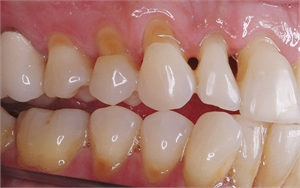
Root Abfractions
3. Abfractions- Abfractions are areas at the gum-line where tooth material has broken off or worn away, exposing the underlying tooth structure and leaving a dished-out void. The causes of abfractions are similar to the causes of recession and must be controlled. The treatment of hypersensitivity due to abfractions is the placement of tooth-colored material, called bonding, to fill in the missing tooth structure. Usually, this can be done without any drilling.
4. Erosion- Erosion at the gum-line is caused by acids which wear away the tooth surface. The source of the acids can be prolonged contact with foods such as lemon or other citrus, or from acid reflux. Do not suck on citrus. If you experience acid reflux or regurgitation of any kind, seek medical help. As with abfractions, the treatment of hypersensitivity due to erosion is the placement of tooth-colored material, called bonding, to fill in the missing tooth structure.
Biting Sensitivity
Traumatic Occlusion- As with the symptoms described above, biting sensitivity may be caused by serious dental disease and must be correctly diagnosed. However, one common cause of biting sensitivity is, in fact, not serious at all. Traumatic occlusion occurs when we bite down on something hard in the food we are eating, such as a piece of bone in some hamburger or hard seed in a salad. Biting down on a hard object can bruise the ligament that holds the tooth in the bone, causing it to swell. The sensitivity usually lasts a day or two and then heals on its own and without any dental treatment. Traumatic occlusion always heals within a few days and does not come back again later.
Dr. Jeff Turner can help you to have a healthy, pain-free mouth for life! Dr. Turner is located in Aliso Viejo across the street from the Aliso Viejo Library. For more information or to request a complimentary consultation, visit us at: TurnerDentalCare.com.


